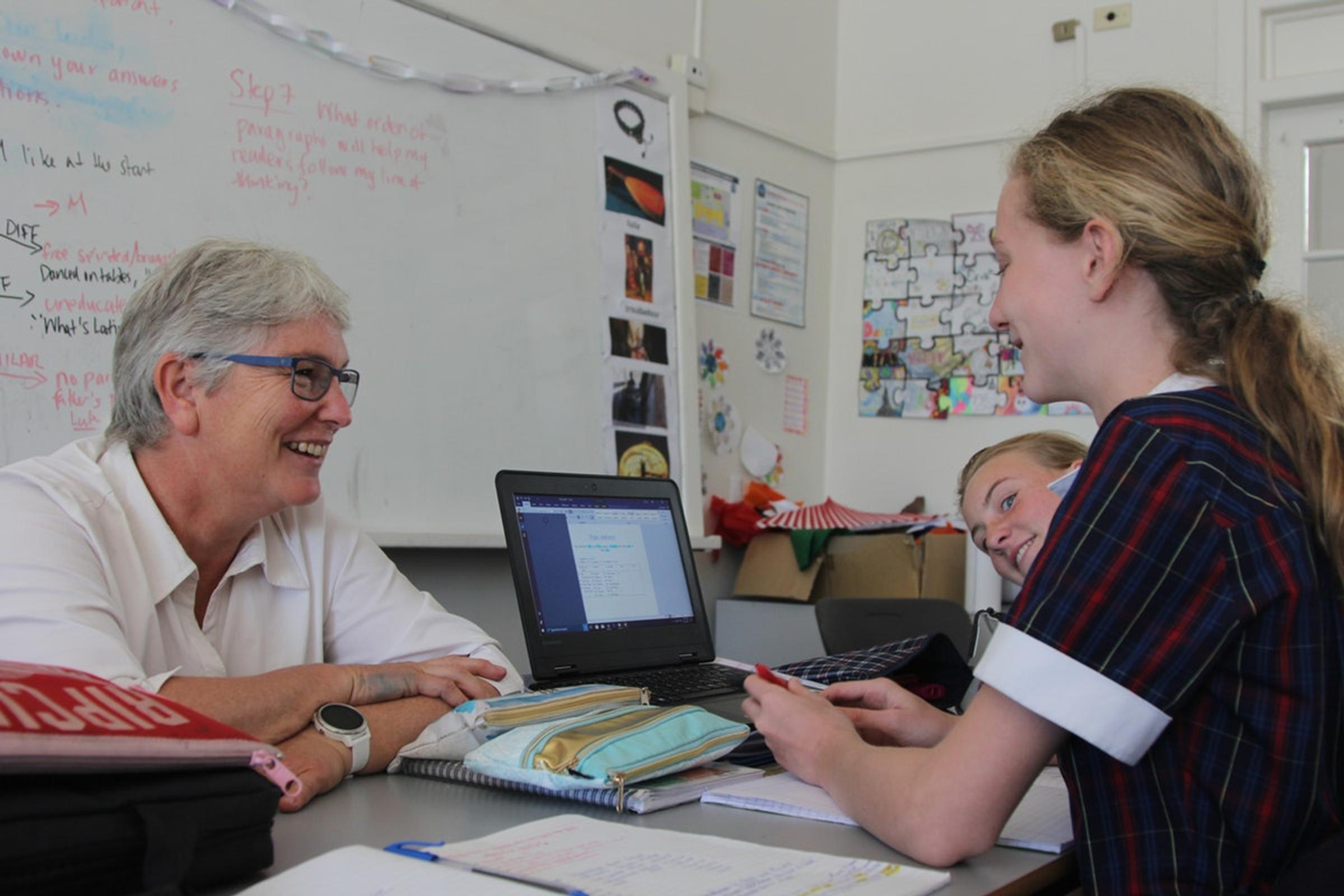Principal's Message

For all of the Year 12 parents…
For good and ill, parenthood is perhaps the most influential role of all in life. Many women and men do not become parents, of course. But, as someone has said, “all of us live in the context of the mother or father we did or did not have.” And those who are parents live in the context of two roles – that of being a mother or father themselves and also of being the daughter or son.
It would be foolish to suggest that the parenting task is an easy or logical one. You hear the Pollyannas of this world cheerily remarking that bringing up children is pretty much plain sailing. But its plain sailing that they talk about, please note, not smooth sailing. And I think it’s fair to say that some people make better sailors than others… There are people who are ‘round-the-world yachtswomen’ in terms of parenting. They can do everything single-handedly and without any undue panic. They bake and sew and fetch and carry, taxi their children to every conceivable basketball match, and whistle and hum while they work. Then there are the ‘in-between parents’ - those who muddle amiably through the morass of vegies and Lego and school reports and canteen duty with few complaints. And then, of course, there are those parents who, despite their very best efforts, never seem to get their sea legs at all.
I think one of the most difficult things about being a parent is trying to determine at any given time what is the right encouragement to give our children and what is the right distance that we need to observe. And both of those things change as children grow older. As R.J. Havighurst notes, “the successful mother [father] sets her [his] children free”. There is no simple formula for that, but a parent’s aim is surely to assist in the development of a person who is responsible, independent, accountable and ethically discerning; that is, developing a person who makes good choices in life. A parent’s aim must be to set their children free from dependence and, ultimately, free from direction and control.
Some parents find that transition very hard, because much of their own self-worth and sense of purpose have become entangled in the way their children are responding or performing or behaving. They try to hang on to an earlier, more dependent form of their relationship with their child, and in doing so, set up a very draining conflict situation, or make it difficult for that child to stand on their own two feet.
When a door is shut on a particular form of a parent-child relationship, we would be wise not to try and return to it but, rather, to attempt to forge a new and different relationship with that child, one that respects the appropriate distance that is necessary for a child to emerge into responsible adulthood.
Academic Focus - MAKING THE MOST OF SWOT VAC
For our Year 12 students…
Here are some study tips for SWOT Vac.
Reach out: Connect with us and book an appointment with your teachers. Your teachers are the best people to provide you with feedback. Talk to them about your exam and question practice and their hints for you to study.
Study Place: Our library will be open for you during SWOT Vac for a quiet place to study.
Identify your resources: Exams can be daunting; however, it is all in the preparation. Please re-read my previous study tips, they will help prepare you for the upcoming exam period.
Chill out: Taking time out to relax is really important for your health and wellbeing.
Sleep well: Getting enough sleep isn’t always easy and it is an extremely important part of a balanced SWOT Vac. Click here for some simple tips on routines to make falling asleep – and staying asleep more achievable.
Work: If you’re working part-time, ask if you can have the exam period off or reduce your time.
Plan your time: Make a study schedule and stick to it. Deakin University has a great on-line tool that you can use and then print.
ICT – E-Safety - Unwanted contact 2
For our community …
The following excerpt is taken directly from the eSafety Commissioners advice online.
Unwanted contact can include:
- being asked inappropriate or personal questions by someone you don’t know
- being sent offensive, confronting or obscene content
- being asked to send intimate pictures or do things online that make you feel uncomfortable.
How do I deal with it?
- Don’t respond and immediately leave the site or chat session.
- Report it to an adult that you trust or to the police if there is a threat to your safety.
- Report and block the contact or remove them from your friends list.
- Change your profile settings so that your personal details are kept private.
- Don’t open messages from people you don’t know.
- Keep the evidence. This can be useful in tracking the person posting unsuitable material.
- Contact your Internet Service Provider (ISP) and/or telephone provider, or the website administrator. There are actions that they can take to help you.
Where do I go for help?
Australian Federal Police (AFP) Online Child Protection Unit
You, as well as adults acting on your behalf, can report abuse or illegal activity online to the AFP’s Online Child Protection Unit by using their online child sex exploitation form or by clicking on the Report Abuse button on the ThinkUKnow or Virtual global taskforce website.
Reference: https://esafety.gov.au/esafety-information/esafety-issues/unwanted-contact
Mobile Phones at MFG 2020
In 2020, in accordance with a ministerial policy formally issued by the Minister for Education under section 5.2.1(2)(b) of the Education and Training Reform Act 2006 we will be implementing a policy where mobile phones or similar devices will not be allowed to be used at MFG in 2020.
While we understand that students may bring a personal mobile phones and similar devices to school, particularly if they are travelling independently to and from school at school there will be a no phone or similar device used from the time your child enters our school until they leave.
What devices will not be permitted?
For the purpose of this policy, a mobile phone refers to mobile phones (a device with access to a cellular (telecommunication) system, with or without a physical connection to a network) and any device that may connect to or have a similar functionality to a mobile phone such as smart watches.
What is the reason for introducing this policy?
